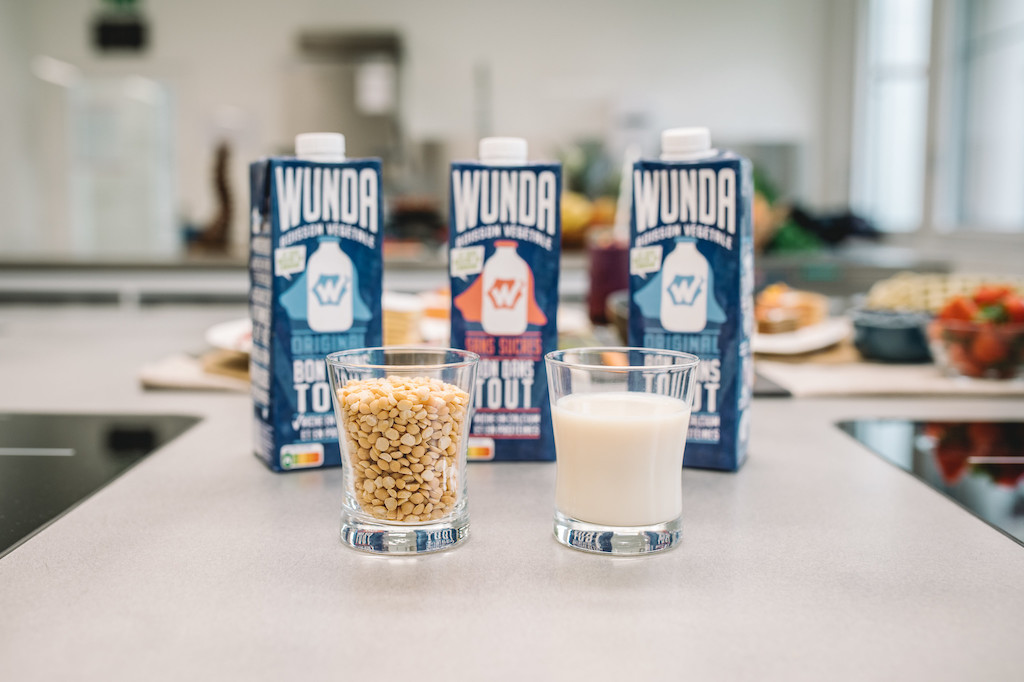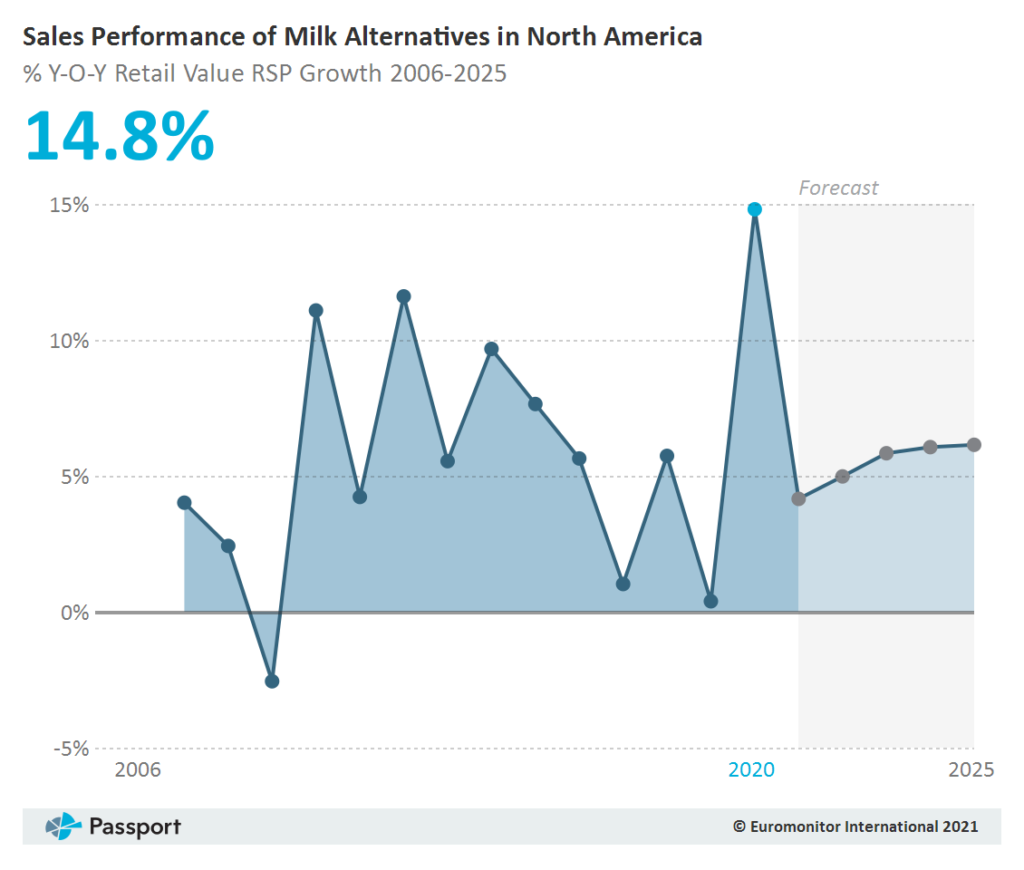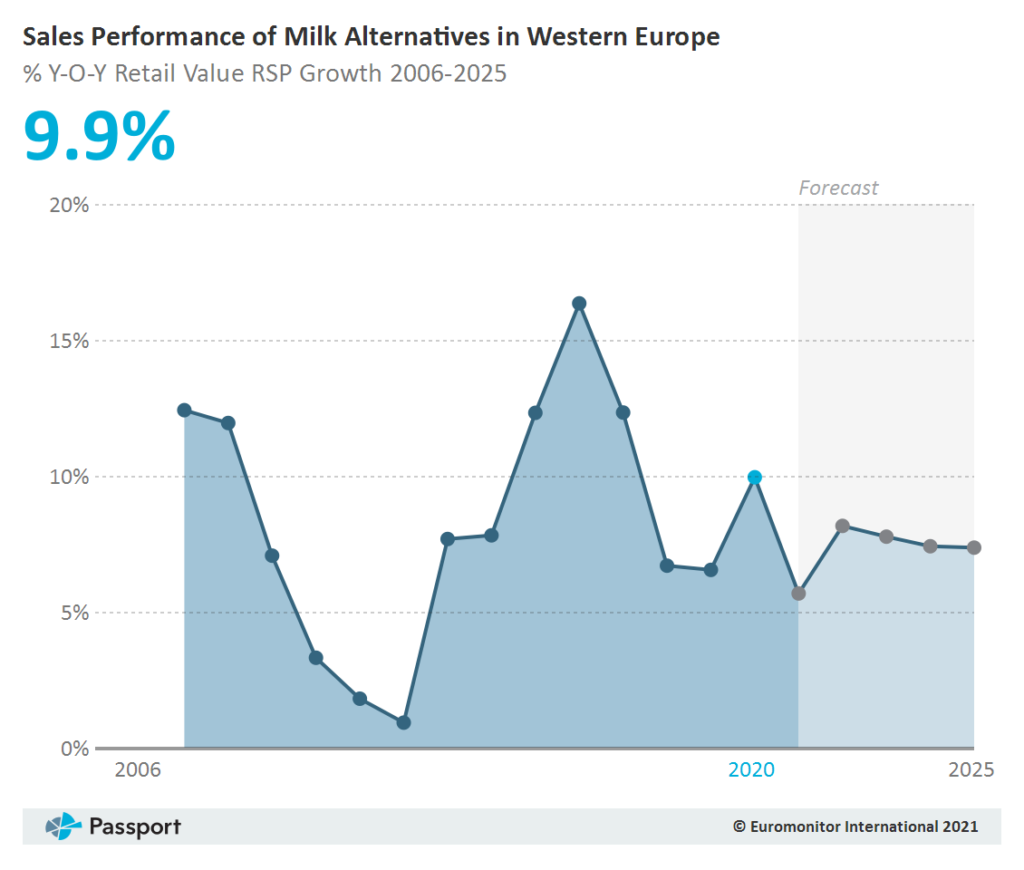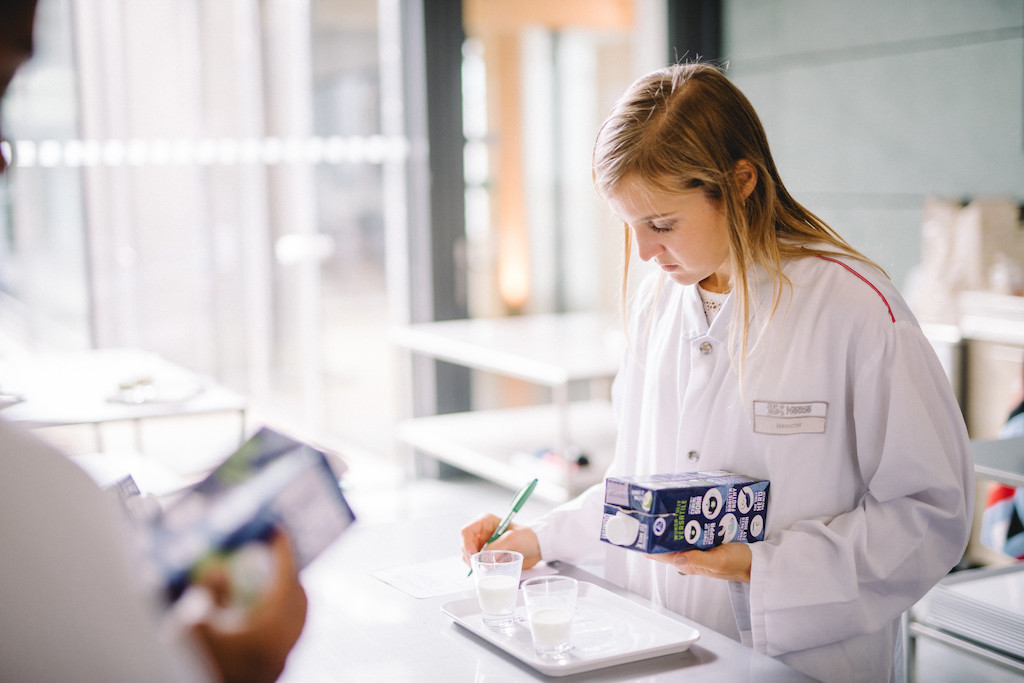4 Mins Read
Swiss food conglomerate Nestlé has launched a new pea-based milk, as the plant-based dairy alternative scene continues to heat up. The new brand, Wunda, is set to launch in several European countries before rolling out across the continent, where existing labels like Alpro and Oatly are currently dominating the market.
Nestlé has introduced Wunda, a new plant-based milk made from yellow peas sourced from France and Belgium. Describing the product as “epic in everything”, the Swiss company said it can replace dairy milk in all its uses, from pouring over cereals to creating the perfect frothy latte. Wunda’s range comes in three varieties – original, unsweetened and chocolate – and are high in fibre, a source of protein, low in sugar and fat and enriched with calcium, vitamins D, B2 and B12.
Because it uses regionally sourced peas and does not require any cows to produce, the new pea-based milk – like its other plant-based variations – are far more carbon-friendly than its dairy counterparts. Nestlé says that Wunda, produced in renewable energy powered factories, will be Carbon Trust-certified carbon neutral, after offsetting the rest of the emissions from production to distribution.
“This truly versatile, delicious pea-based beverage is an excellent source of protein and fiber. Its great neutral taste, the ability to use it for different applications and the fact that it is carbon neutral make it an ideal plant-based alternative to milk,” said Stefan Palzer, Nestlé CTO.

Its great neutral taste, the ability to use it for different applications and the fact that it is carbon neutral make it an ideal plant-based alternative to milk
Stefan Palzer, CTO, Nestlé
“Our young intrapreneurs created this great product based on their own consumer needs by leveraging our longstanding expertise in plant-proteins and dairy.”
It was developed under the Nestlé R&D Accelerator, which functions much like a startup within the company to create, scale and innovate novel products. According to Nestlé, the team behind Wunda took just six months to create the pea-based milk, and were able to leverage the food giant’s technologies and equipment.
Wunda will be initially launched in France, the Netherlands and Portugal, before Nestlé brings the brand to more European markets, vying for competition with the dominant Alpro and Oatly brands on the market.


According to data from market research provider Euromonitor International, Danone-owned Alpro takes up around 25% of market share in Western Europe, while Swedish oat milk maker makes up around 9% – though Oatly is likely to race ahead in the next few years with its triple-digit growth rates. Alpro primarily produces soy and almond-based dairy alternatives, though it also offers a line of cashew, coconut and oat-based milks as well.
Read: Nestlé unveils US$3.5B climate plan powered by plant-based innovation & regenerative agriculture

People are asking for better plant-based drinks that are nutritious, versatile and taste great.
Cédric Boehm, Head of Dairy, Nestlé Europe & MENA
“There is a quiet food revolution underway that is changing how people eat. In Europe, at least 4 in 10 shoppers are already choosing some dairy alternatives,” said Cédric Boehm, head of dairy for Europe and MENA, describing the years-long dairy-free trend that has only accelerated during Covid-19.
“People are asking for better plant-based drinks that are nutritious, versatile and taste great. We have the expertise in plant-based and experience in dairy to be at the forefront of this shift.”
Nestlé hopes to claim their share of the fast-growing plant-based dairy market by standing out with Wunda’s novel blend of pea-based milk, rather than using a nut-based blend. So far, non-nut-based, non-soy and allergen-friendly milks remain few and far between, and oat milk is the primary contender.
There are, however, a handful of existing pea-based beverage makers, including Californian food tech Ripple Foods and Swedish “zebra” startup Sproud, as well as British player Mighty Pea.
“We’re sure people will be convinced by Wunda,” said Boehm.
All images courtesy of Nestlé.




